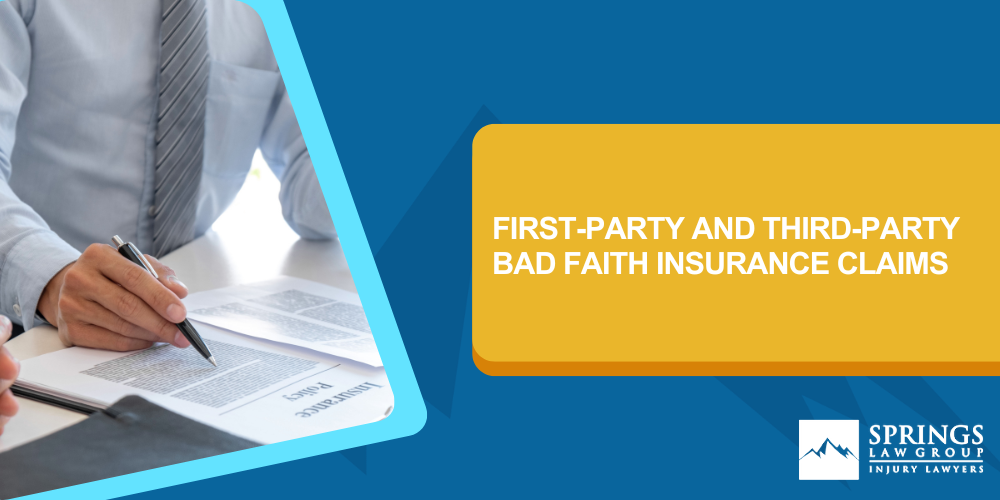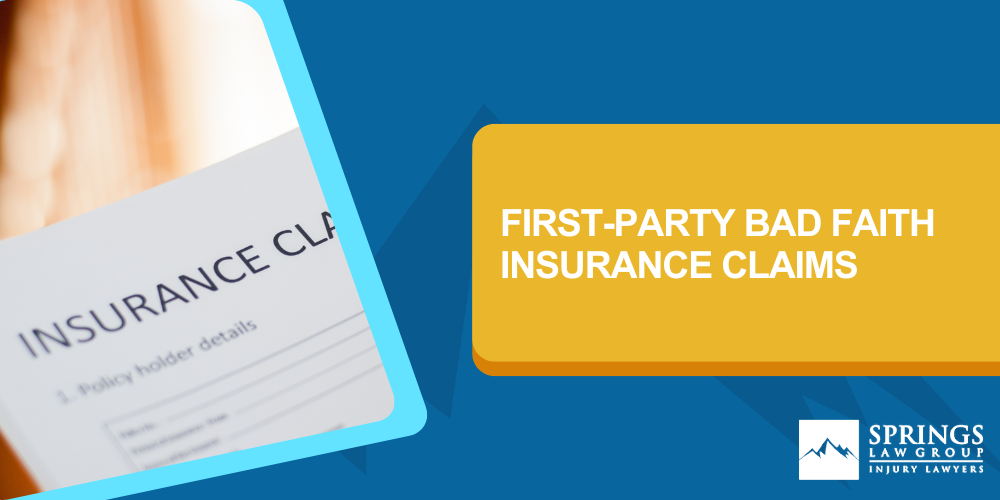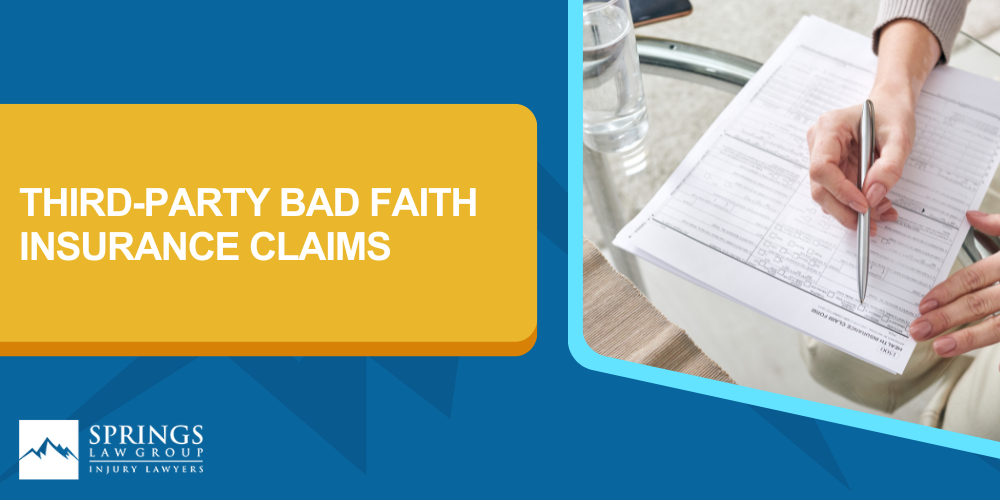First-Party and Third-Party Bad Faith Insurance Claims

Whenever you must file a claim for compensation after suffering injuries in an accident, you expect the insurance companies to handle your claim in a professional and prompt manner. This is true whether you are filing a claim with your own insurance company or under the negligent party’s policy. However, this does not always happen. If an insurance company fails to treat you properly or settle your claim in a reasonable manner, you may have a bad faith insurance claim against the company that could entitle you to additional compensation over and above what is owed for your claim.
First-Party Bad Faith Insurance Claims

An insurance company has a fiduciary duty to the insured party to look for ways to pay a legitimate claim, cooperate with that party in settling the claim, and pay the claim in a prompt fashion. When an insurance company breaches these and other duties, the policyholder could have a first-party bad faith insurance claim against the insurance company. Ways that the insurance company could engage in bad faith practices include:
- Denying the claim for reasons that don’t make sense
- Failing to give the insured party a reason for the denial of the claim
- Not conducting an investigation of the claim
- Offering to settle the claim for significantly less than the person should receive
- Failing to communicate with the policyholder regarding his claim
- Stalling settlement negotiations or raising unreasonable obstacles to the settlement of the claim
- Delaying or failing to pay the settlement amount
Third-Party Bad Faith Insurance Claims

While the insurance company for the negligent party has fewer duties to a victim filing a claim than to its insured, it still has a duty to investigate the claim and resolve it within a reasonable period of time. The insurance company can act in bad faith both in its dealings with its insured and the victim. Here are examples of third-party bad faith actions:
- Unreasonable delay in making a decision on a claim
- Failing to defend a lawsuit if its insured is sued
- Unreasonably interpreting a provision in the insurance policy to deny or limit coverage
- Threatening the insured person
- Failing to make a reasonable settlement offer to the accident victim
- Not investigating the claim or failing to do so adequately
Do you believe your insurance company or the negligent party’s insurance company is acting in bad faith in settling your claim? You need the assistance of an experienced attorney to resolve your bad faith insurance claim. Our skilled legal team is here to help you fight for the compensation you deserve. Call our office to schedule a free consultation to learn about your legal rights and how we can help you obtain justice.
